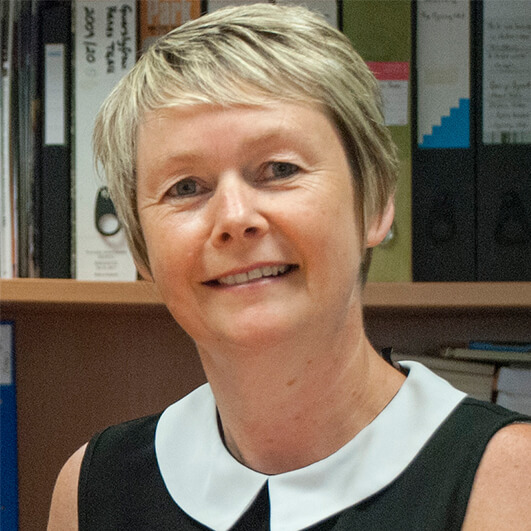6 December 2021
Coleg Cymraeg Cenedlaethol's Welsh Medium Digital Learning Materials Project

Author
Delyth Ifan
Coleg Cymraeg Cenedlaethol
The Coleg Cymraeg Cenedlaethol (Welsh National College) was founded in 2011 to plan and support Welsh language higher education provision in a strategic manner across Welsh universities. The Coleg’s aim is to work with providers to ensure and develop more Welsh medium study opportunities for learners, students and apprentices in Wales.
Expanding on her session at the Higher Education Investment and Recovery (HEIR) conference in September 2021, Delyth Ifan, writes about the Coleg’s Welsh Medium Digital Learning Resources Project.
A few weeks before the first lockdown, Coleg Cymraeg Cenedlaethol published its latest Strategic Plan. Strategic priorities include 'Enhancing the student and learner experience', at the core of which are:
- creating learning resources of the highest quality for students, and
- supporting high-quality blended and online learning.
Access to learning resources of all kinds in Welsh is vitally important to students when they choose to study through the medium of Welsh. When enrolling on courses, one of the main concerns that students have is the amount of resources available to them in Welsh.
When Covid struck, access to resources became even more important, as learning during the first lockdown period focused exclusively on distance and blended learning approaches.
In terms of the Welsh language, there was a serious risk that departments would have to prioritise large teaching groups and core modules - which would inevitably be in English. This would have resulted in reduced opportunities for students to study in Welsh, and Welsh-medium students would have had a second-rate learning experience.
With HEFCW's announcement of its intention to establish an Investment and Recovery Fund - and that there would be an opportunity for institutions to apply for funding for schemes aimed at mitigating the effects of the pandemic - this provided the perfect opportunity to further develop the Coleg's work on resources. It was an opportunity to help academic staff in the short term to bring together resources that would help them with their teaching in a virtual environment; and it was also an opportunity to create high-quality resources for the long term that would increase the learning offer available to students across the whole sector in Wales.
So what exactly is the Digital Learning Materials Project? Unlike the emphasis of the Coleg’s previous resources projects, which focused on creating resources to support learning, the emphasis of this project has been on the delivery itself. That is to say, on supporting non-synchronous learning. The aim is therefore to produce a package of resources around prerecorded lectures; PowerPoint slides; narrative text explaining the context of the content; quizzes and questions/discussion points that students can download, consider and answer before attending a seminar - based on the concept of the flipped classroom; bibliography and links to reading material and further information.
.png?sfvrsn=c707db81_1)
It was decided, in conjunction with representation from each university, to focus on six priority subjects, based on the popularity of these subjects in the universities, and the numbers studying them through the medium of Welsh. These subjects are:
- Business Studies
- Social Sciences
- Psychology
- Sports Sciences
- Law
- Social Work
Institutional representatives were given the opportunity, at the start of the project, to identify where the common ground lies in the provision of all institutions and to agree which provision and modules offer the best opportunities for collaboration and sharing of expertise. The modules did not have to match exactly between institutions, but there was a need to identify common themes in the provision, so that the materials could be shared between as many institutions as possible.
In January 2020, the institutions were invited to nominate individuals from their staff to take on the role of Subject Co-ordinators and as Subject Contributors. The majority of the project's funding is used to 'buy' these individuals' time and free them from some of their duties within their institutions.
Two e-learning technologists were also appointed, to provide valuable technical guidance to lecturers, including advice on accessibility issues. Ensuring that the resources meet at least the minimum accessibility requirements has been an important part of the project. In addition, a language editor service is provided to contributors in order to standardise the materials, as well as a terminologist service to ensure that the correct terms are used; also that new terms are coined where necessary, and added to the Welsh National Terminology Portal.
The Coleg provides a central service to the project, in the form of management, coordination/liaison, and administration. In my role as the Project Co-ordinator, I produced guidelines on the creation of resources at the outset of the project, providing advice to contributors on language, copyright, terminology and accessibility issues; on a day-to-day basis I coordinate the project teams, the language editors and the terminologist.
In terms of staging, all materials will be accessible through the Coleg’s Resource Portal; and each video will be available under various categories for streaming or downloading. All resources will also be available on the Coleg’s Blackboard in their original form so that the individual components can be downloaded for use as required.
This plan will offer not only a short-term solution, but also long-term provision, as blended learning approaches are likely to become the 'norm', with more emphasis in the future on a combination of synchronous and non-synchronous learning techniques .
On the face of it, the legacy of this project will be 150 hours of lectures across six subject areas, which will safeguard and enhance Welsh-medium provision. However, it also has real potential to underpin further collaboration and joint planning between Welsh universities to create more resources for the future.
This blog is also available in Welsh.
